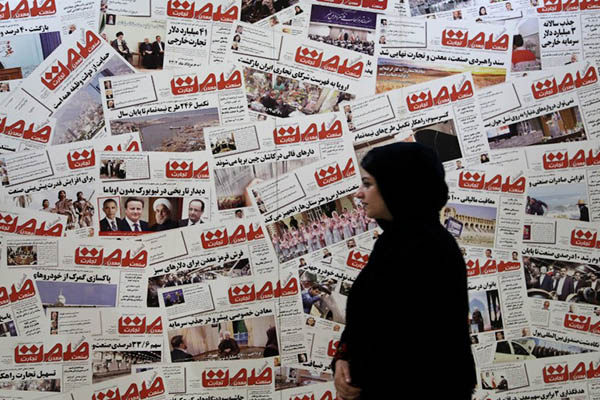
File Photo. Atta Kenare—AFP
Tehran’s president had earlier stated it was not the police’s duty to enforce Islam
Iranian police are taking a softer approach to breaches of Islamic rules, opting for education over punishment, Tehran’s police chief said on Wednesday.
“According to a decision of the commander of the police force, those who do not observe Islamic codes will no longer be taken to detention centers nor judicial files opened on them,” Brigadier General Hossein Rahimi said in a speech in the Iranian capital. “We offer courses and 7,913 people have been educated in these classes so far,” he said, adding that there were more than 100 counseling centers in Tehran province.
Rahimi, who was appointed in August, did not elaborate on which Islamic codes were in question or when the new guidelines were introduced. It marks a stark shift from his predecessor, General Hossein Sajedinia, who announced in April 2016 that there were 7,000 undercover morality police reporting on things like “bad hijab”—a blanket term usually referring to un-Islamic dress by women.
Figures are rarely given, but Tehran’s traffic police said in late 2015 they had dealt with 40,000 cases of bad hijab in cars, where women often let their headscarves drop around their necks. These cases generally led to fines and temporary impounding of the vehicle, the spokesman said at the time.
Mandatory headscarves have been key symbol of Iran’s Islamic rule since the revolution of 1979, fiercely defended by hardliners but ever harder to enforce, particularly in wealthier areas where loose and colorful scarves have become the norm.
President Hassan Rouhani, who came to power in 2013 promising a more moderate stance, has said it is not the job of police to enforce religious rules. “It is not the police’s duty to enforce Islam. No police officer can say I did something because God or [Islam’s] Prophet have said so… Many religious issues are a matter of personal faith,” he told a police conference in 2015.
Although his comments attracted criticism from conservative clerics and supreme leader Ayatollah Ali Khamenei, there has been a generally softer approach on the streets, with far fewer reports of morality police accosting women.
